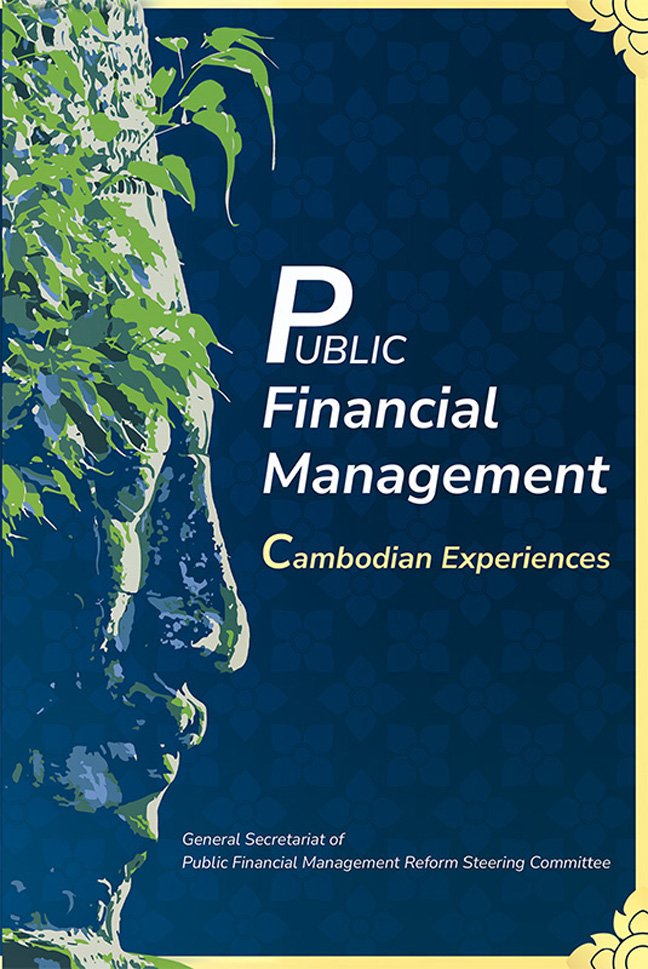Book contents
- Frontmatter
- Contents
- List of Figures
- List of Tables
- Foreword
- Preface
- Acknowledgements
- Notes on the Author, Editors and Contributors
- Abbreviations
- Chapter 1 Introduction
- Chapter 2 Overview of Cambodian Economy and PFM Reform Program
- Chapter 3 Strategic Planning and Budgeting
- Chapter 4 Components of PFM in Cambodia
- Chapter 5 PFM System Assessment Tools
- Chapter 6 Case Study
- Chapter 7 PFM Experiences of Selected ASEAN and OECD Countries
- Bibliography
- Glossary
- Index
Chapter 7 - PFM Experiences of Selected ASEAN and OECD Countries
Published online by Cambridge University Press: 26 March 2024
- Frontmatter
- Contents
- List of Figures
- List of Tables
- Foreword
- Preface
- Acknowledgements
- Notes on the Author, Editors and Contributors
- Abbreviations
- Chapter 1 Introduction
- Chapter 2 Overview of Cambodian Economy and PFM Reform Program
- Chapter 3 Strategic Planning and Budgeting
- Chapter 4 Components of PFM in Cambodia
- Chapter 5 PFM System Assessment Tools
- Chapter 6 Case Study
- Chapter 7 PFM Experiences of Selected ASEAN and OECD Countries
- Bibliography
- Glossary
- Index
Summary
This chapter highlights public financial management reform experiences of selected ASEAN countries—Thailand, Vietnam, the Philippines, Thailand and Malaysia—and the OECD countries of New Zealand, France, Australia, Sweden and Estonia. It aims to draw lessons and implications for Cambodia’s reform program. No one country can provide Cambodia with one specific model to follow that meets its culture and structure of government; therefore, a variety of experiences is the best way to help inform its approach.
7.1 THAILAND: STRATEGIC PERFORMANCE-BASED BUDGETING
Thailand has made impressive strides in social and economic development over the last four decades. Strong, sustained economic growth prompted Thailand to become an upper-middle-income country in 2011 and made the country the second-largest economy in Southeast Asia after Indonesia. But before this growth, Thailand suffered a major shock as a result of the Asian Financial Crisis in 1997. The crisis saw the country’s annual real GDP rate decline sharply by –1.3 per cent and –9.4 per cent in 1997 and 1998, respectively, down from its 9 per cent growth rate between 1986 and 1996. The crisis taught the country about the huge cost affiliated with weak economic management. It put tremendous pressure on the government’s fiscal balance and forced reforms in public sector financial management to enhance public sector efficiency.
As a response to the crisis, the government launched the Public Sector Management Reform Plan (PSMRP). Its vision was for a medium-term institutional transformation to “New Public Management”, which focused on improving performance and accountability. The “New Public Management” agenda encompassed five areas: (1) the role, mission and administration of public sector reform; (2) budgets becoming “performance-based”; (3) human resource management reform; (4) legal reform, and (5) value changes.
Performance-based budgeting (PBB) was introduced with a sophis-ticated framework, a new concept in the Thai public sector. It included the devolution of budget control, a medium-term expenditure framework, a focus on outputs and outcomes, and monitoring and evaluating performance indicators.
Before the reform, Thailand’s budget system was centralized, input controlled, inflexible, and distorted by government agencies, which were inefficient in both allocation and operation. The linkages among planning, budgeting, and sectoral policy were weak. The fiscal planning process only focused on annual budgeting, not using a medium-term approach. There was no adequate information technology to support the budget process. Transparency and accountability were also challenging issues.
- Type
- Chapter
- Information
- Public Financial ManagementCambodian Experiences, pp. 137 - 172Publisher: ISEAS–Yusof Ishak InstitutePrint publication year: 2023



